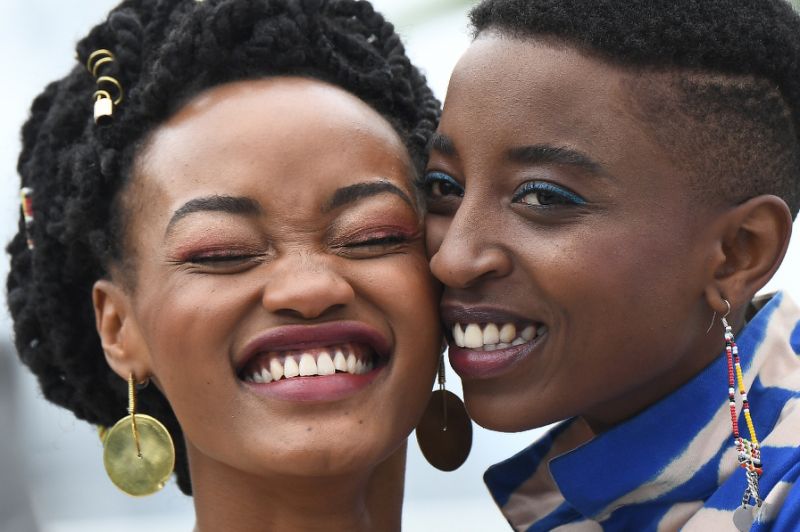Samantha Mugatsia: Actress in banned lesbian film ‘Rafiki’ wins award – Tek Portal

Kenyan actress Samantha Mugatsia was named the best actress at Africa’s major movie pageant for her lead part in the film. Mugatsia, who played the lesbian character Kena, won the award at the Fespaco Film Festival in Burkina Faso on Saturday.
Fespaco, the French acronym of the Pan-African Film and Television Festival of Ouagadougou, is Africa’s longest jogging movie festival and it celebrated its 50th anniversary this yr.
Rafiki which implies “good friend” in Swahili was banned final calendar year by the Kenya Movie Classification Board (KFCB) for “selling lesbianism.”
The ban was temporarily lifted by a Kenyan courtroom soon after the film’s director Wanuri Kahiu filed a lawsuit demanding the preliminary ruling.
Kahiu’s legal professionals argued that banning the movie violated her constitutional correct to free of charge speech and free of charge expression as an artist.
The court buy allowed Kenyans enjoy the movie for a 7 days and manufactured it qualified to be submitted for the Most effective Foreign Language movie at this year’s Academy Awards.
According to the Academy’s guidelines, a movie will have to be proven in the region the place it was made for seven consecutive times to be suitable.
The movie also obtained support from other international locations as festivals in the Uk and Nigeria screened it.
The motion picture manufactured history as the initial Kenyan film to premiere at the Cannes movie festival.
Motivated by the 2007 Caine Prize short story winner “Jambula Tree” by Ugandan author Monica Arac Nyeko, ‘Rafiki’ is the tale of friendship and tender enjoy that grows among two younger ladies amidst family and political pressures, according to the film’s promotional materials.
Influenced by the 2007 Caine Prize quick story winner “Jambula Tree” by Ugandan writer Monica Arac Nyeko, ‘Rafiki’ which indicates ‘friend’ in Swahili is the tale of friendship and tender adore that grows among two youthful females amidst family and political pressures, according to the film’s marketing substance.
Becoming gay in Kenya
Kenya is a deeply conservative region wherever homosexuality is criminalized in the country’s penal code and is punishable by up to 14 several years in prison.
Prompted by general public uproar, the law enforcement arrested two gentlemen in 2015 and conducted pressured anal exams on them to confirm they were being gay.
Last yr, anal examinations were ruled unconstitutional by a Mombassa court of attractiveness. The court identified that conducting compelled anal exams on people accused of very same-sex relations is illegal, in accordance to Human Legal rights Check out.
The ruling reversed a 2016 Superior Court selection that experienced upheld the Kenyan authorities’ use of forced anal exams on guys suspected of becoming homosexual.
A courtroom in Kenya is envisioned to produce a prolonged-awaited ruling in Might on regardless of whether to strike down colonial-era legal guidelines banning homosexuality in the east African nation.
Why was “Rafiki” banned?
The board mentioned ‘Rafiki’ experienced exact same-sexual intercourse scenes and undertones which were not in the script initially submitted for approval.
The director was questioned to get rid of the scenes but she refused, KFCB mentioned in a statement.
The KFCB added that foreign sponsors who intend to introduce and normalize homosexuality in Kenya by means of films must desist from these kinds of functions.
“Kenya is a place with a society, beliefs and shared values which need to be highly regarded,” it reported.
“Hare-brained strategies by foreigners funding film producers in Kenya to promote homosexuality in the identify of equality and inclusion will be uncovered and strongly resisted,” a spokesman for the board reported.
http://rss.cnn.com/~r/rss/edition_africa/~3/tT05hhu9lmA/index.html



